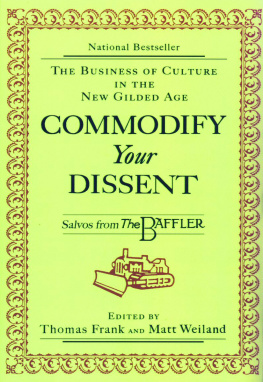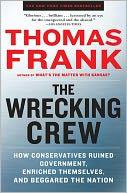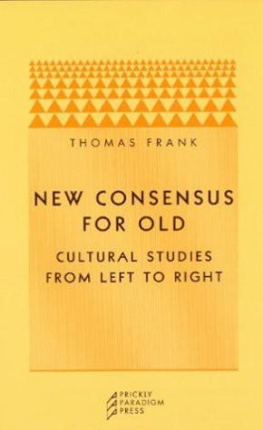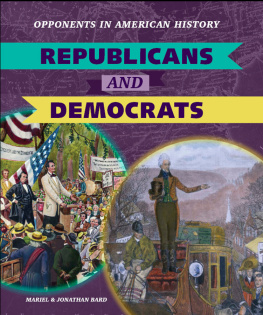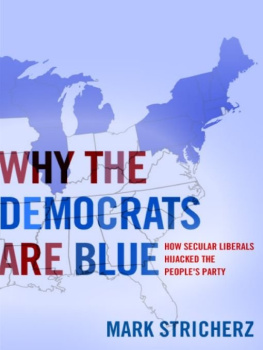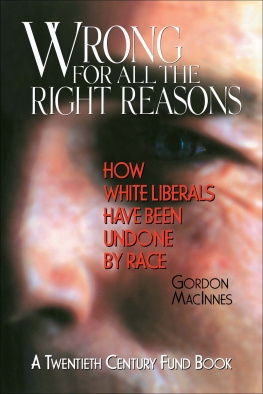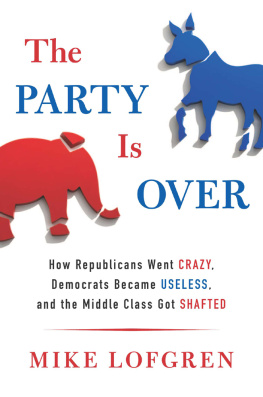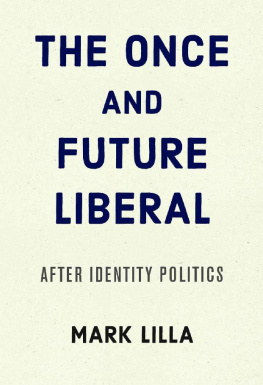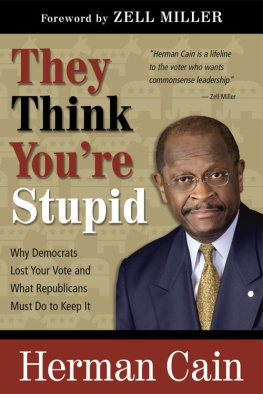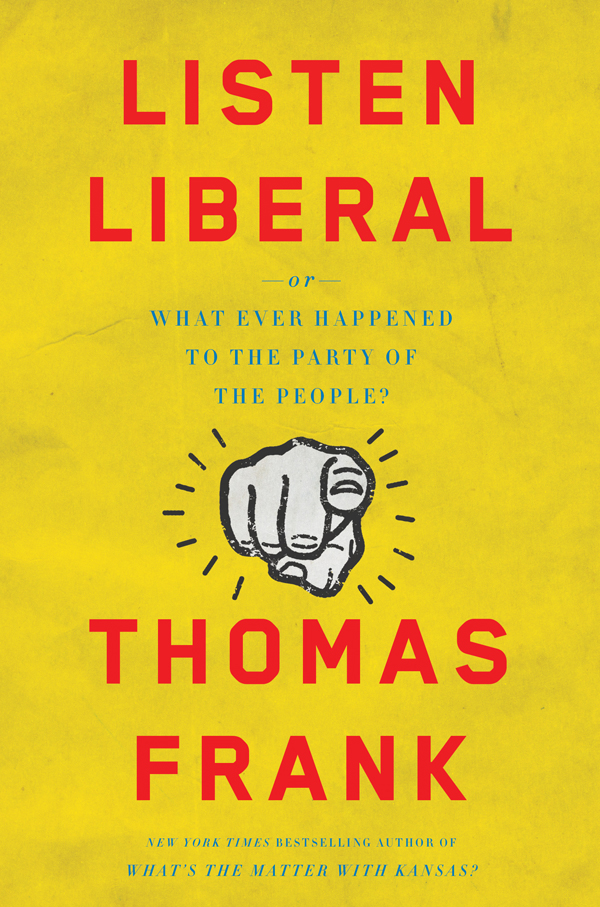Contents
Guide

The author and publisher have provided this e-book to you for your personal use only. You may not make this e-book publicly available in any way. Copyright infringement is against the law. If you believe the copy of this e-book you are reading infringes on the authors copyright, please notify the publisher at: us.macmillanusa.com/piracy.
It is doubtless important to the good of nations that those who govern have virtues or talents; but what is perhaps still more important to them is that those who govern do not have interests contrary to the mass of the governed; for in that case the virtues could become almost useless and the talents fatal.
Alexis de Tocqueville, Democracy in America (translated by Harvey C. Mansfield and Delba Winthrop)
McGeorge Bundy, then, was the finest example of a special elite, a certain breed of men whose continuity is among themselves. They are linked to one another rather than to the country; in their minds they become responsible for the country but not responsive to it.
David Halberstam, The Best and the Brightest , 1972
There are consequences to excessive hope, just as there are to other forms of intemperance. One of these is disillusionment, another is anger, and a third is this book.
For a generation, Democratic politicians have talked of hope as though it were their unique selling proposition, a secret ingredient they had that no other major-party brand could offer.
Today those same Democrats express annoyance at the suggestion that anyone could really have taken them seriously on this hope business. It is hard to govern, they say; you cant get everything you want from politics. Ordinary citizens are beyond disillusioned, though. It has been nine years since the last recession began, and whether the country is in a recovery or a slump or even a galloping bull market makes no difference to them anymore.
According to official measurements, the last few years have been a time of brisk prosperity, with unemployment down and the stock market up. Productivity advances all the time. For those who work for a living, however, nothing seems to improve. Wages do not grow. Median income is still well below where it was in 2007. Workers share of the gross national product (as opposed to the share taken by investors) hit a record low in 2011and then it stayed there right through the recovery. It is there to this day; economists now regard its collapse as a quasi-permanent development.
In the summer of 2014, with the Dow Jones Industrial Average hitting all-time highs, a poll showed that nearly three-quarters of the American public thought the economy was still in recessionbecause for them, it was.
There was a time when average Americans knew whether we were going up or going downbecause when the country prospered, its people prospered, too. But these days, things are different. From the middle of the Great Depression up to 1980, the lower 90 percent of the population, a group we might call the American people, took home some 70 percent of the growth in the countrys income. Look at the same numbers beginning in 1997from the beginning of the New Economy boom to the presentand you find that this same group, the American people, pocketed none of Americas income growth at all. Their share of the good times was zero. The gains they harvested after all their hard work were nil. The upper 10 percent of the populationthe countrys financiers, managers, and professionalsate the whole thing. The privileged are doing better than at any time since economic records began.
To be a young person in this economy, just out of school and starting to feel the burden of now-inescapable student loans, is to sense instinctively the downward slope that most of us are on these days. People who are twenty-five today are doing worse than people of that age ten years ago, and much worse than people who were twenty-five back in 1996. The same is true, incidentally, of people who are thirty-five, forty-five, and probably fifty-five, but for the young this reversal of the traditional American trajectory is acutely painful: they know that no amount of labor will ever catapult them into the ranks of the winners.
At the other end of the social ladder, meanwhile, it is all upside all the time. In 2012, corporate profits (measured as a share of gross domestic product) hit their highest level on record. In 2014, according to a much-discussed think tank report, the total of all the bonuses handed out on Wall Street was more than twice as much as the total earned by every person in the country who worked full-time for the minimum wage. Measured in terms of wealthof property and investments, stocks and bondsmatters are even more perverse. One particularly lucky American family, in fact, has as much wealth as does 40 percent of the American population. The main accomplishment of the six individuals who make up this fortunate bunch was to inherit shares in Wal-Mart, the retailer that has sucked the life out of thousands of middle-American towns. Sucked the wealth out of those towns and spent it on the six Wal-Mart heirs tasteless mega-mansions, their degrees from prestigious colleges, their fancy racecars, and their sports teams. They own a bank, a ballet company, an art gallery (where you can see Norman Rockwells painting of Rosie the Riveter), and of late the Wal-Mart bunch have begun reforming the public schools your kids go to.
Should all this go onand it willthose kids of ours are going to be educated on certain matters far better than we ever were. They will know to laugh at the old middle-class promiseretirement, pension, a better life than the previous generation hadbecause it is propaganda so transparent it sounds like something the Soviet Union used to put out. They will understand that this isnt a commonwealth; its a workhouse.
And thats where we are, eight years post-hope. Growth that doesnt grow; prosperity that doesnt prosper. The country, we now understand, is simply no longer arranged in such a way as to make its citizens economically secure.
A while ago I spoke at a firefighters convention in the Pacific Northwest, talking as I always do about the ways we have rationalized these changes to ourselves. Firefighters are the sort of people we honor for their bravery, but they also happen to be blue-collar workers, and they have watched with increasing alarm what has been happening to folks like them for the last few decades watched as the people formerly known as the heart and soul of this country had their lives taken apart bone by bone. They themselves still make a decent living, I was toldthey are some of the last unionized blue-collar workers who dobut they can see the inferno coming their way now, as their colleagues in other parts of the country get their contracts voided and their pensions reduced.
After I spoke, a firefighter from the Seattle area picked up the microphone. Workers had been watching their standard of living get whittled away for decades, he said, and up till now they had always been able to come up with ways to get by. The first adjustment they made, he recalled, was when women entered the workforce. Families added that income, you got to keep your boat, or your second car, or your vacation, and everything was OK. Next, people ran up debt on their credit cards. Then, in the last decade, people began pulling home equity out, borrowing against their houses. All three of those things have kept the middle class from having to sink down into abject poverty, he said. But now all three coping mechanisms were at an end. There were no more family members to send to work, the expiration date had passed for the home-equity MasterCard, and still wages sank. His question was this: Is there a fourth economic savior out there, or do you think that maybe we have reached the end?



